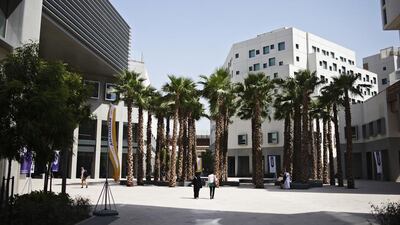On my office door I have a cartoon that’s divided into two parts. One side says: “Science can tell you how to clone a Tyrannosaurus Rex” and has a picture of a white-coated scientist staring at a dinosaur as it emerges from a test tube. The other side of the cartoon says: “The humanities can tell you why this might not be a good idea”, and we see the dinosaur chasing the scientist.
I’ve been thinking about the dinosaur and the scientist lately because it’s graduation time for university students and the seniors I know have been discussing the relative merits of what they chose as a major. Some of the students who did not choose STEM subjects (science, technology, engineering, maths) are worried because they think that STEM is “where the jobs are”. Parents seem to think that STEM will safely launch the ship of their child’s adulthood, and the children in question think they will graduate and move right into that corner office (or lab).
Wouldn’t it be lovely if life actually worked like that?
But of course, life is not a lab experiment and a college major is not the same thing as a career. We may wish for certainty and we hope that our children will realise all their dreams, but a university education is no guarantee, alas. Ideally, however, it can give people the ability to adapt to life’s sudden twists and turns, which are as inevitable as being bored during graduation speeches.
Graduation, like any ritual, offers a simultaneous focus. It is an ending and commencing. When I watch my students graduate, I feel a mix of pride and nostalgia, and a deep awareness of the passage of time. It’s not quite the same as watching my own children grow up because my children age as I age; we move together through time. My individual students differ from year to year, of course, but they are almost always in their early 20s at graduation. It’s as if they are on an island called “youth,” which I sail further and further away from every year.
I graduated into a world that at the time seemed dauntingly complex but now looks amusingly quaint: there was no Google and webs belonged only to spiders. Given the complexity of today’s world, then, it is no wonder that students seek the comfort of what is the often narrow focus called for by undergraduate STEM studies. This focus on just one skill-set may have unexpected drawbacks, however, as the former president of Kenyon College in the US pointed out in an online business article last year. “There is a terrible irony,” she says, in encouraging undergraduates to specialise “at the very moment the world has become more complex.”
Conventional wisdom says that this generation of students will have at least three different careers during their working lives – and some of those careers may be in fields that don’t yet exist. Negotiating these transitions may be beyond the scope of a straightforward STEM focus, which industry leaders are beginning to suggest. CEOs from businesses as diverse as Amazon, Logitech, Aetna, and Intel are cited in a recent Business Insider piece as emphasising the importance of the liberal arts, which encourage critical thinking and communication. The Logitech CEO goes so far as to say that someone who can think and write clearly is “an endangered species.” If you’re the person who possesses these “endangered” talents, then, you’re automatically a very valuable employee.
And Steve Jobs, the patron saint of all things tech and entrepreneurial, insisted on the need for disciplinary diversity, in his launch speech for the iPad2: “Technology alone is not enough,” he said. “It’s technology married with liberal arts, married with the humanities, that yields the results that make our hearts sing.”
No Apple product has ever made my heart sing (unless you count singing along with my iPod) but his point is clear: university students (and us middle-aged folk too) would do well to think not only about cloning the dinosaur but also about imagining the possibilities of what might happen afterwards.
Deborah Lindsay Williams is a professor of literature at NYU Abu Dhabi

